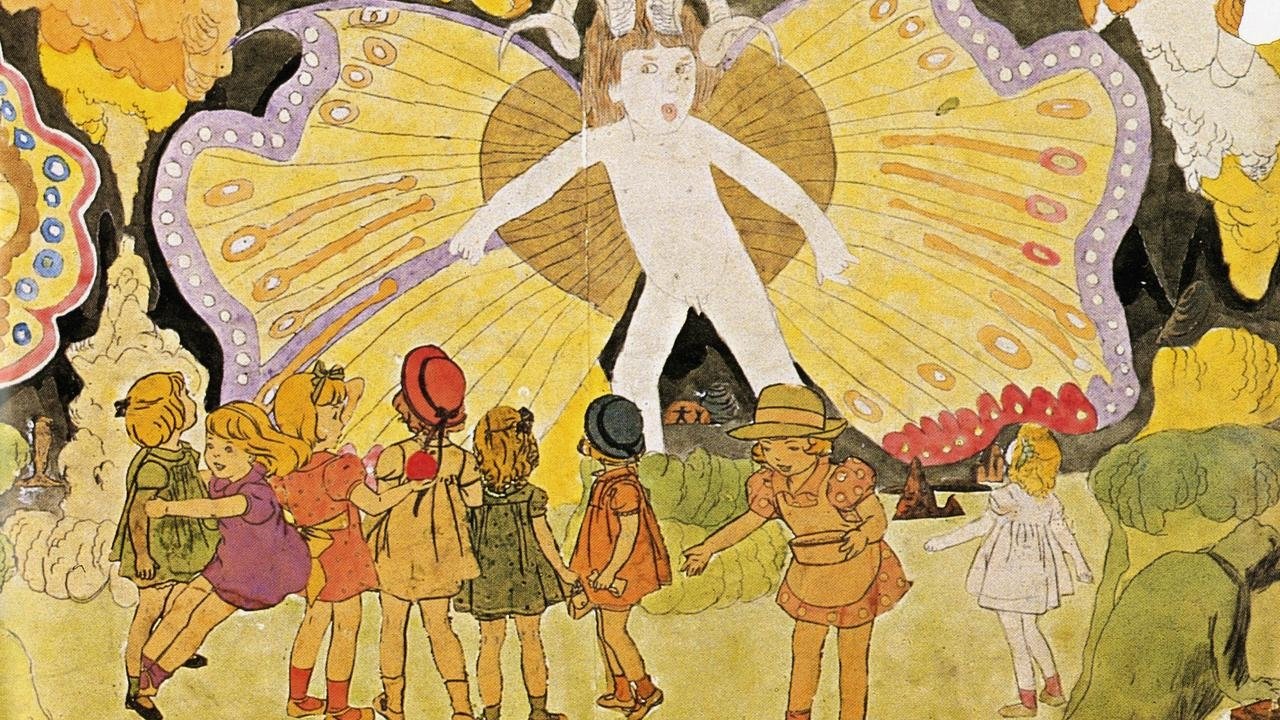This is a 2004 documentary film by Jessica Yu introducing the life and work of Henry Darger. A major figure of "outsider art", Darger's work was only discovered after his death when his landlords found thousands of pages of text and paintings in his room. Through his long life, he was known to his few friends and associates only as a janitor in a local hospital. Secretly, he wrote a massive manuscript chronicling the rebellion of girl slaves in a fantasy world, painted with watercolors of the heroines and battles.
Yu has chosen three main narrators for the documentary. A little girl (Dakota Fanning, even) narrates Darger's biographical facts, while excerpts from Darger's autobiography are reads by an old man (Larry Pine), and texts from his fantasy epic are read by some fellow with a radio play delivery. In addition, we find interviews with people who knew Darger. Kiyoko Lerner, his landlady and now the caretaker of his legacy, is of course featured, as are some of his neighbours and an altar boy from his church. While everyone reports him to be an odd fellow, Yu avoids the controversial issue of Darger's mental health, preserving the ambiguity of whether he was mad or a mere eccentric. Similarly, the relation of Darger's work to sexual frustrations or the possibility of sexual abuse as a child are left out. But this is a mere introduction, and it's reasonable to expect the viewer to move on to other sources for contentious matters. My only real complaint is that Yu is not always content to let Darger's paintings speak for themselves. Rather, she has animated certain of Darger's scenes, which I feel distorts the paintings to a degree. While I think the film does not deserve a one-star rating for this as another reviewer awarded it, it is troubling.
Nonetheless, all in all this is a fine presentation of a remarkable figure. And if Darger's intrigues you, I'd recommend also discovering Adolf Wolfli, a Swiss madman whose life and work resembles Darger in several years.

